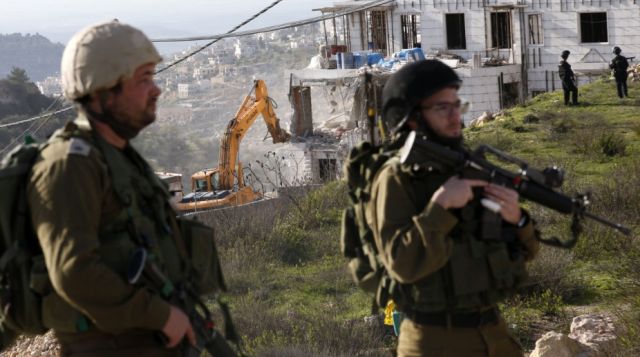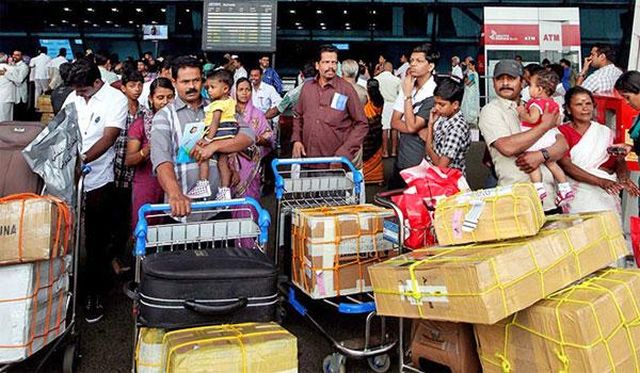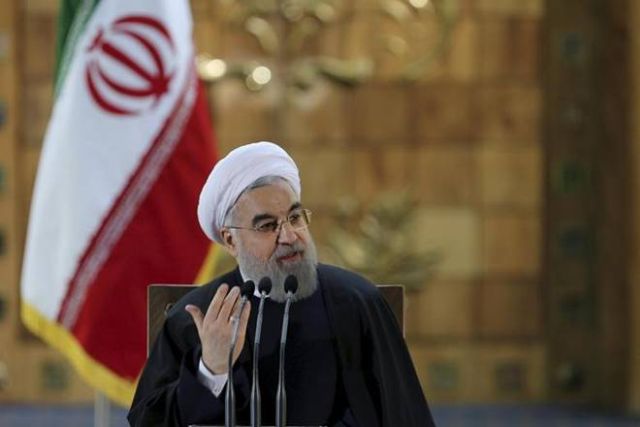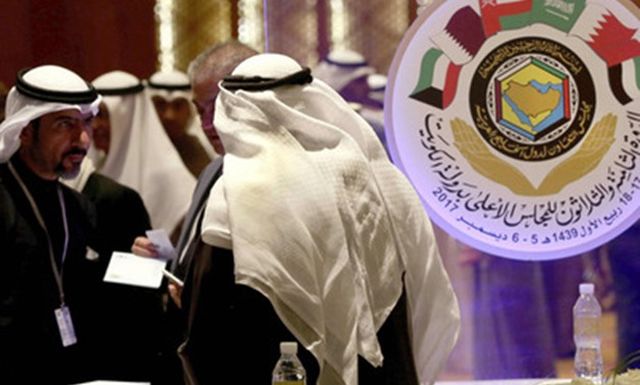
by admin | May 25, 2021 | Muslim World

Ayatollah Ali Khamenei
Tehran : Iran will overcome the new wave of sanction pressures by the US, a senior Iranian official said on Friday.
“The American officials believe that Iran would surrender under the pressure of sanctions, but it will become obvious soon that the Iranian nation will successfully overcome the challenge of new sanctions,” Xinhua quoted Ali Akbar Velayati, a senior adviser to Iran’s Supreme Leader Ayatollah Ali Khamenei, as saying.
“Today, the region’s top power is undoubtedly Iran, which has been able to cut off the hands of the US and its regional allies from the set (of pro-resistance countries) around us,” the Iranian former foreign minister said.
Velayati described the US anti-Iran sanctions as “a kind of revenge”, stressing that the Iranian government and nation will stand together in confronting the sanctions.
The US Secretary of State Mike Pompeo said last month that Iran will suffer the toughest sanctions in history from the United States if it does not change the current course.
Pompeo urged Tehran to report to the International Atomic Energy Agency about its nuclear program, end proliferation of its missiles, and stop supporting “terrorist groups” in the Middle East.
—IANS

by admin | May 25, 2021 | Muslim World
 United Nations : The UN special coordinator for the Middle East peace process, Nikolay Mladenov, on Tuesday warned that tensions in the Middle East are taking “an increasingly perilous turn.”
United Nations : The UN special coordinator for the Middle East peace process, Nikolay Mladenov, on Tuesday warned that tensions in the Middle East are taking “an increasingly perilous turn.”
“Fighting in Syria is increasing, endangering de-escalation arrangements and regional stability, as well as undermining efforts for a political solution.
“Despite the positive news from Iraq and the defeat of the Islamic State terrorist group, much of the Middle East continues to be in the grips of an ongoing human tragedy of immense proportions,” Xinhua quoted Mladenov as saying to the Security Council.
Against this backdrop and after over a century of hostilities including 50 years of continued military occupation, Israelis and Palestinians are still no closer to peace. Many have lost hope that they will see it in their lifetimes, he said.
“The enemies of peace are growing more confident by the day. They see every failure of the forces of moderation as a win for the forces of radicalisation. They believe the political odds are turning in their favor. Day after day they are emboldened.”
Hindering peace are also those who push facts on the ground, who promote unilateral moves blocking the pathway back to the negotiating table, warned Mladenov.
“None of this will bring us closer to resolving the conflict. None of it will respond to the inalienable right of the Palestinian people to statehood or the Israeli longing for security. It will only drive us further down the road of confrontation, suffering and a one-state reality of perpetual occupation.”
The security situation on the Golan Hights is also a matter of growing concern, said Mladenov.
A worrying escalation occurred on Feb 10, when Israeli Defence Forces destroyed what they identified as an Iranian unmanned aerial vehicle which had reportedly entered its airspace from Syria.
Shortly thereafter, Israeli aircraft targeted a Syrian airbase. During the attack, one Israeli jet was hit, injuring two pilots, which further prompted Israel to attack what it described as “12 military objectives” inside Syria.
“I urge all sides to work toward easing tensions in this highly volatile area,” he said.
Heightened rhetoric was exchanged between Israel and Lebanon over disputed maritime areas, he said. The UN continues to call on the sides to act responsibly, avoid security risks and explore with the support of the United Nations ways to resolve the issue, he said.
Preparations continue for May parliamentary elections in Lebanon and for the upcoming Rome II and Cedre conferences to support the security sector and economy, respectively due on March 15 and April 5, said the UN envoy.
—IANS

by admin | May 25, 2021 | Economy, Employment, News, Overseas
 By Sanu George,
By Sanu George,
Thiruvananthapuram : With the Middle East, which was once the dream of many a Keralite, no longer that attractive on account of falling oil prices and with no proper records of the actual number of returnees, a new diaspora study covering 25,000 households has been launched to find out what the actual scenario is.
The study aims to not only analyse not the present trends in migration but also the medium and long-term consequences of important developments like the global financial crisis of 2009, the drop in oil prices and the stricter immigration policies increasingly followed by countries worldwide and its impact on Kerala’s economy.
S. Irudayarajan, who heads the study by the Migration Unit at the Centre for Development Studies here said its single purpose is to examine ground realities and not to go by unfounded reports that there is a mass exodus from the Middle East.
“This new survey has been titled Kerala Migration Study-KMS@20. It is the eighth a series that begain in 1998. The study would be done in 25,000 Kerala households spread over all the 14 districts and the first results would emerge in April,” Irudayarajan told IANS.
KMS is widely regarded as a reliable and authentic source of data for researchers and policymakers. Following the success of the Kerala model, similar initiatives have been launched in Tamil Nadu, Punjab, Goa and Gujarat, from where large numbers of people have spread out across the globe.
Irudayarajan pointed out that structural changes in the global oil market and the consequent fall in oil prices have posed fresh challenges to the oil-producing countries in the Middle East in the last few years.
“The repercussions are being felt in Kerala’s economy and society which has been a consistent supplier of workers and a receiver of large amounts of remittances. Additionally, the governments in Gulf countries have been progressively evolving institutional arrangements and programmes aimed at promoting the employment of their own nationals,” Irudayarajan said.
He also pointed out that the things are not rosy was pointed out in the KMS-2016 study, when for the first time a decline was noticed in number of Kerala emigrants abroad from 2.4 million in 2014 to 2.24 million in 2016 — a drop of 160,000 lakh.
The state had 1.36 million emigrants when the first KMS was conducted in 1998. The figure rose to 1.83 million in 2003, 2.19 million in 2008, 2.28 million in 2011 and peaked at 2.4 million in 2014.
He added that once the results are out later in the year, the state government can evolve appropriate interventions in education, employment and skill development of prospective emigrants as well as the re-integration of returnees into Kerala’s economy and society.
Irudayarajan pointed out that it was wrong to come to conclusions only based on the arrivals and departures from the three Kerala airports as this will only give a lop- sided picture.
“The figures from the airports are only numbers and do not differentiate between workers and others, as they include women and children. Besides, there are a good number of Keralites who goe for holidays to the Middle East. Our 2016 survey had already showed that there was a decline and now in a few months from now, we will bring out the actual picture,” Irudayarajan added.
Remittances from migrants have been instrumental in sustaining Kerala’s economy, constituting 36.3 per cent of the state’s net domestic product. It is now widely accepted that migration has played a significant role in poverty alleviation and in raising the living standards of about one-third of Malayali households.
“Moreover, it is postulated that an additional one-third of the population is indirectly benefitted from the economic opportunities created by remittances from abroad,” Irudayarajan explained.
According to the figures released by the State Level Bankers Committee, the rate of growth of NRI deposits has come down of late. If one looks at the deposits at the 6,339 branches of various commercial, scheduled and private banks, they stood at Rs 117,349 crore in June 2015, grew to Rs 142,668 crore in June 2016 and at Rs 154,252 crore in June 2017.
(Sanu George can be contacted at sanu.g@ians.in)
—IANS

by admin | May 25, 2021 | Muslim World

Hassan Rouhani
Tehran : Iranian President Hassan Rouhani said on Sunday that Iran could restore its relations with Saudi Arabia should the kingdom end its “friendship” with Israel.
Tehran would “have no problem” with Riyadh if it stops “bowing to Israel” and relies on itself, Rouhani said at a parliamental meeting, Xinhua reported.
“We want Saudi Arabia to stop two things, the misguided friendship with Israel and the inhuman bombardment of Yemen,” he stressed.
Saudi Arabia cut diplomatic ties with Iran in early 2016 in protest against the attacks against Saudi diplomatic missions in Iran following the Saudi execution of a Shiite cleric.
The firing of a ballistic missile at Riyadh by the Houthis last month led to renewed tensions between Saudi Arabia and Iran.
Rouhani’s remarks came amid media reports that Riyadh has been seeking closer ties with Israel in a bid to counter the rising influence of Iran, a common enemy to Saudi and Israel.
On November 25, Saudi Crown Prince Mohammed bin Salman compared Iran’s growing regional influence to Germany’s hegemonic policies in the Hitler era.
“We learned from Europe that appeasement would not work. We do not want the ‘new Hitler’ of Iran to repeat what happened in Europe in the Middle East,” he said.
A Saudi-led military coalition has been fighting the Iran-backed Houthi rebels in Yemen since March 2015 to support President Abd Rabbu Mansour Hadi, who was ousted by the Houthis in September 2014.
The Houthis have seized control of much of Yemen’s northern areas, including the capital Sanaa since 2014.
—IANS

by admin | May 25, 2021 | Business Summit, Events, Muslim World, Social Round-up
 Kuwait : The 38th annual summit of the Gulf Arab heads of state will convene here on Tuesday and Wednesday, officials said, despite an ongoing dispute between some members of the group.
Kuwait : The 38th annual summit of the Gulf Arab heads of state will convene here on Tuesday and Wednesday, officials said, despite an ongoing dispute between some members of the group.
A rift between the Gulf Cooperation Council members Saudi Arabia, Bahrain and the United Arab Emirates (UAE), on one side, and Qatar on the other has put this year’s annual meeting in doubt, Al Arabiya reported.
The crisis, which began in June, revolves around allegations by Saudi Arabia, the UAE, Bahrain and Egypt that Qatar supports terrorism, a charge Doha denies. Qatar says the four countries were trying to force Doha to fall in line with their own foreign policy views.
Qatar’s Foreign Minister Sheikh Mohammed bin Abdulrahman al-Thani met his Gulf Arab counterparts on Monday ahead of the summit, one of the highest official encounters since some of them cut diplomatic, trade and travel links with Doha.
Al-Thani said that Qatari Emir Sheikh Tamim bin Hamad al-Thani would attend the six-nation Gulf Cooperation Council (GCC) meeting, despite the dispute within the group.
—IANS





